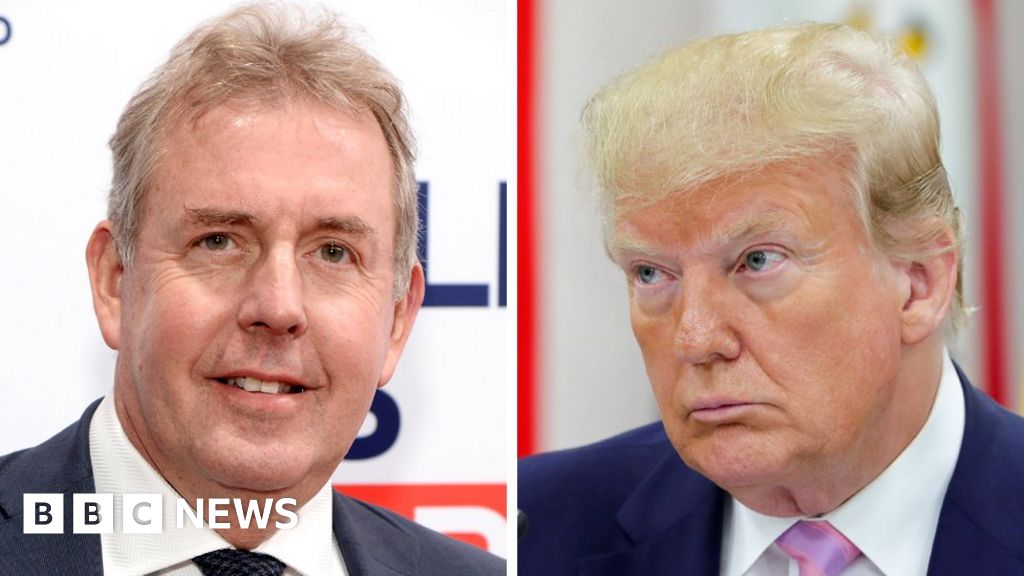
Scotland Yard has said it respects the rights of the media, but that the recent publication of leaked diplomatic memos was not in the public interest.
Police have launched a criminal investigation into the leak of diplomatic emails from the UK ambassador in the US, Sir Kim Darroch.
Metropolitan Police Assistant Commissioner Neil Basu said publishing the emails could be a criminal offence.
Editors criticised an earlier statement warning against further publication.
Mr Basu said police have "no intention of seeking to prevent editors from publishing stories in the public interest in a liberal democracy".
However, he said the Metropolitan Police had been told that the publication of "these specific documents... could also constitute a criminal offence and one that carries no public interest defence".
"We know these documents, and potentially others, remain in circulation," he added.
The government has already opened an internal inquiry into the publication of the memos, which were critical of the Trump administration - and prompted a furious reaction from the US president, who said he would no longer deal with Sir Kim.
The row began a week ago when confidential emails emerged where the UK ambassador to the US called Donald Trump's administration "clumsy and inept".
President Trump branded Sir Kim "a very stupid guy" and Sir Kim stepped down on Wednesday, saying it was "impossible" for him to continue.
'Ill-advised'
A criminal investigation into the leak was launched by the Met Police Counter Terrorism Command, which takes national responsibility for investigating allegations of criminal breaches of the Official Secrets Act.
Mr Basu said he was satisfied the leak had damaged UK international relations and added that there was a "clear public interest" in bringing those responsible to justice.
He faced a backlash, however, after he advised individuals and the media not to publish leaked government documents and to instead hand them over to the police or return them to their rightful owner.
Evening Standard editor George Osborne described the Met statement as "stupid" and "ill-advised".
Sunday Times political editor Tim Shipman branded it "sinister" and "anti-democratic". "Do you have any comprehension of a free society? This isn't Russia," he tweeted.
Mr Basu issued a further statement on Saturday afternoon saying he had received legal advice that led to the Met initiating an investigation into the documents as a potential breach of the Official Secrets Act (OSA).
"We have a duty to prevent as well as detect crime and the previous statement was intended to alert to the risk of breaching the OSA," he said.
What is 'in the public interest'?
Journalists are not above the law, but it is understood "in a free, liberal and democratic society" that the media "should be free to report on leaked documents that they believe are in the public interest", says Ian Murray, executive director of the Society of Editors.
Mr Murray maintains it is unlikely police are going to "shoot the messenger", adding that to hold authority to account journalists can't be allowed to be bullied into handing over documents.
Who decides what is in the public interest, however, can be contentious.
"It's a difficult line to tread between what's in the public interest and what interests the public," Mr Murray says.
However, he adds that the idea that one particular body would make that decision - or no-one would have to decide because journalists have "dutifully" handed in documents to the police is "appalling".
https://www.bbc.com/news/uk-48976780
2019-07-13 15:18:51Z
52780331817080
Tidak ada komentar:
Posting Komentar